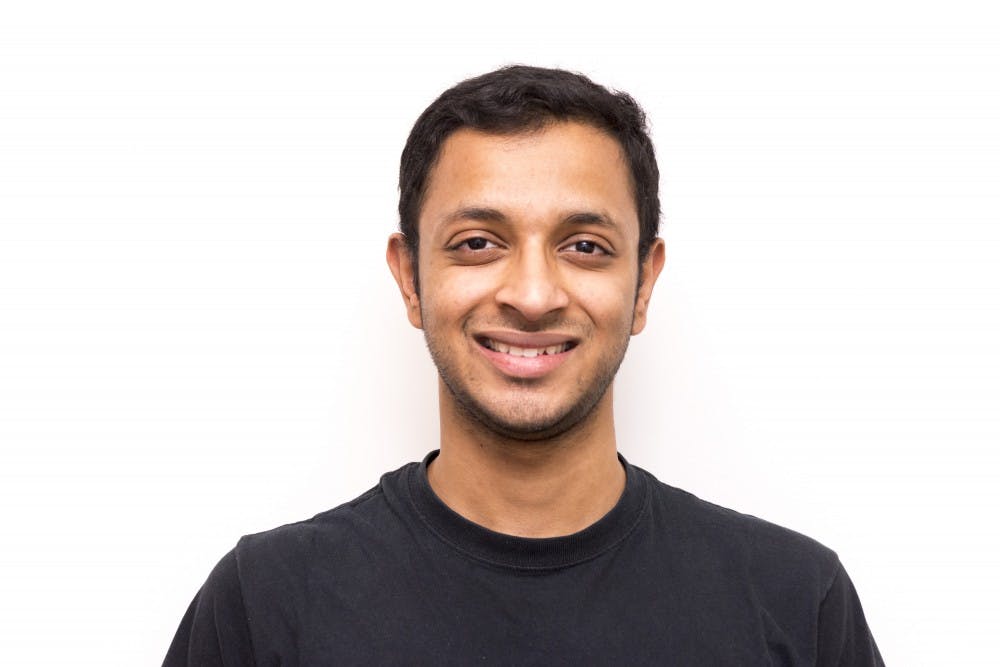Right now on this campus, thousands of pre-med students shuffle to their massive biology lectures, their on-campus research positions, their clinical volunteering jobs, their health related extracurriculars or their activities unrelated to medicine but picked because medical schools prefer them.
Ask any of them about it, and I expect they will all say the same thing: it sucks.
But how much does it have to suck? The pre-med track is hard for good reason: Medicine is even harder. We should want our doctors to have good grades, clinical experience and stamina. All of these will be necessary and tested during their time in medical school, residency and beyond.
However, the biggest problem with the pre-med track is that it doesn’t effectively prepare students for their future jobs as doctors. It leaves massive gaps, under-developing skills doctors absolutely need and forcing pre-meds to spend time learning things they will never use again.
Here is the list of hard requirements necessary to get into any medical school: two semesters of Math, two semesters of English, two semesters of Biology, two semesters of General Chemistry, two semesters of Organic Chemistry, two semesters of Physics, one semester of Biochemistry, a good GPA (maybe 3.4+ but usually higher), a reasonably high MCAT score (510-ish? It’s hard to tell because the MCAT scoring scale just changed) and some form of clinical exposure.
On top of that, for a better shot at medical school: all the courses listed above and one semester of Psychology, one semester of Sociology, a higher GPA (3.6+), a higher MCAT score (515? Once again, hard to tell), a consistent trend of clinical volunteering, shadowing of doctors, research experience (bonus points for having it published and other activities), unrelated to health care, that show you are a well-rounded and interesting person.
For a decent shot, a pre-med student must take 15 courses, maintain a high GPA, take a seven hour long MCAT, volunteer in a clinical setting for roughly 200 hours over the course of their college career, shadow doctors another 50-ish hours, do some form of research — the more the better — and then on top of all that, do something else to show they care about more than just medicine.
It is undeniable that you need a solid foundation in the sciences if you want any hope of surviving medical school. But do you need to know much about plant biology to be a good doctor? Or spring constants? Or u-substitution for integrals?
The new MCAT reflects the growing emphasis on the sciences doctors will actually use in their careers, phasing out less necessary subjects. For example, the amount of organic chemistry on it has been significantly cut back. That’s right folks, the two hardest semesters of your undergrad education are the smallest part of the MCAT. And Orgo will be completely useless right after. My mother, who has been a practicing doctor for 35 years, never learned organic chemistry — she went to medical school in India with different requirements — and it hasn’t come up yet.
However, essential things that future doctors absolutely need to learn, like effective teamwork and collaborative skills, communicating with patients in simple and easy to understand language, logical reasoning in diagnosis and basic skills like how to take blood pressure or use a syringe are not required. It is still extremely possible to have an amazing medical school application without any of these abilities.
There is an argument to be made that these skills are taught during medical school. However, once you are in, that school is making a massive commitment to ensure that you become a doctor. They should at least find out if you have the fundamental nonquantifiable skills before giving you an extremely competitive spot.
The fact that the pre-med track is misaligned with what practicing medicine actually requires is more frustrating than all of the drudgery, the weed out courses, the grade deflation and the thousands of textbook pages we are expected to learn throughout our premedical education. A good chunk of our suffering isn’t even relevant to what we want to do.
JOE THARAKAN is a College junior from the Bronx, in the Biological Basis of Behavior program. His email address is jthara@sas.upenn.edu. “Cup o’Joe”usuallyappearsevery other Saturday.
The Daily Pennsylvanian is an independent, student-run newspaper. Please consider making a donation to support the coverage that shapes the University. Your generosity ensures a future of strong journalism at Penn.
DonatePlease note All comments are eligible for publication in The Daily Pennsylvanian.








